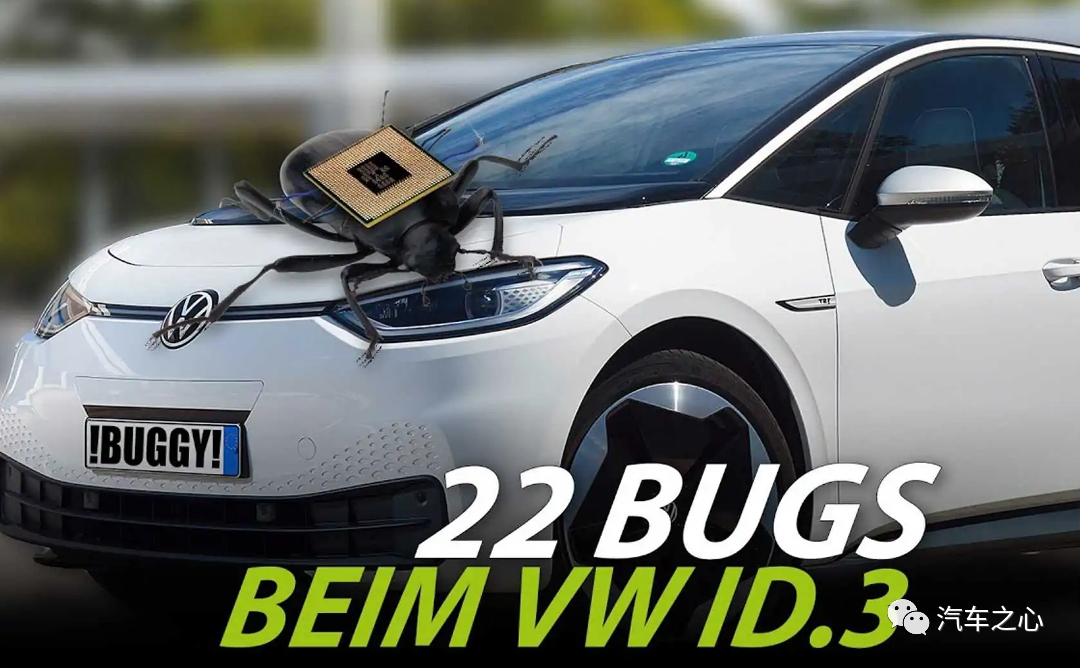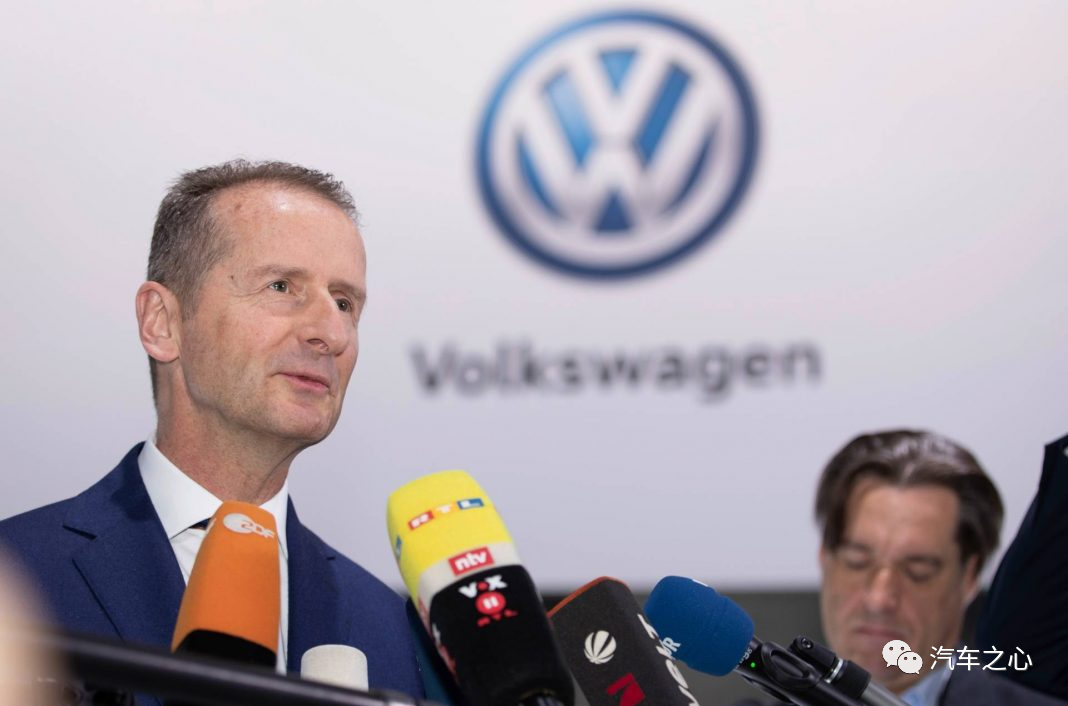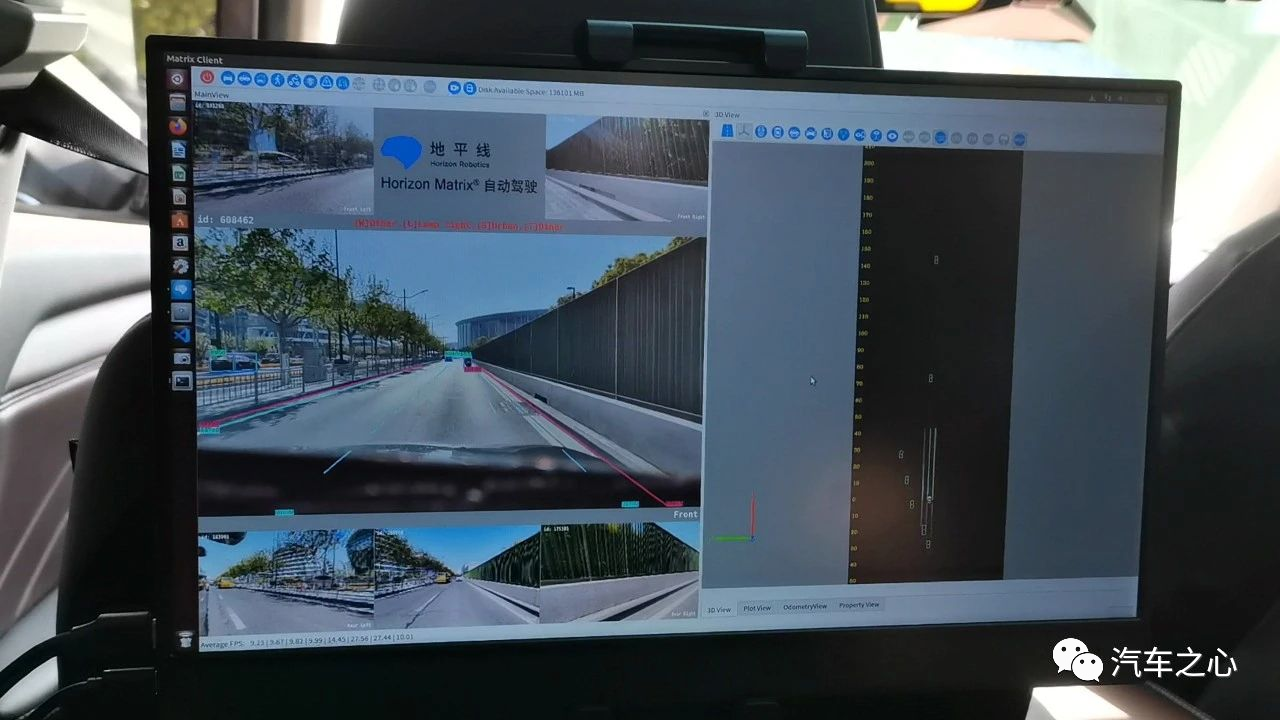Author: Tian Xi
This is a small step for Volkswagen Group, but a big one for multinational car companies.
On October 13, Volkswagen Group’s software company CARIAD announced a partnership with Horizon to establish a joint venture, jointly developing a full-stack advanced driving assistance system and autonomous driving solution focusing on the needs of Chinese consumers.
According to the plan, CARIAD will hold 60% of the shares and achieve controlling interest.
To this end, Volkswagen Group plans to invest approximately 2.4 billion euros (about RMB 16.7 billion), setting a record for the largest single investment in China over the past 40 years.
Undoubtedly, this is an extraordinary collaboration.
For Volkswagen, it will accelerate its development in the field of autonomous driving.
Previously, due to the problem of slower-than-expected progress in intelligence, including ID series and other models under Volkswagen were forced to postpone launch, causing huge losses for the group and internal management turmoil.
For Horizon, it is of historic significance. The seven-year-old autonomous driving newcomer, after winning numerous orders domestically, finally knocked on the door of foreign auto brands for the first time.
Horizon founder Yu Kai immediately posted on his WeChat Moments, excitedly saying: “After a long period of effort and waiting, the major partnership between Horizon and Volkswagen Group can finally be officially announced…”
From the perspective of the industry, the impact is not limited to this.
The keyword for the “marriage” between Volkswagen and Horizon is local research and development, a very rare action during the era of traditional combustion engine cars.
Generally speaking, multinational car companies tend to keep the most core technology research and development (in the past, it was the engine, transmission, and chassis, and now it is autonomous driving) tacitly retained in overseas headquarters, but in the era of intelligent cars, this situation is beginning to change.
From fully self-developed to letting go and seeking cooperation, Volkswagen’s “Moon and Sixpence”
Behind the partnership with Horizon is the result of Volkswagen’s struggle between radicalism and compromise.
It has always been known that Volkswagen has ambitions in the transformation of electrification and intelligence.
Former VW CEO Herbert Diess set a grand goal: to surpass Tesla by 2025 and become the world’s largest electric vehicle company.
The specific path is also very clear, fully self-developed, independently designing and developing high-performance chips and the necessary software.
In Diess’s words, in order to achieve the best performance, “the software and hardware of the car must come from the same hand.”“`

It is difficult to achieve a good vision.
Taking self-development of software as an example, as early as 2019, Volkswagen underestimated the development difficulty and frequent “bugs” occurred, resulting in a delay of several months in the delivery of the first MEB platform smart electric vehicle ID.3 and a missed market window of competition with Model 3.
At that time, engineers complained, “The infrastructure architecture development of ID.3 software is too hasty.” Media also reported that Volkswagen lacked programmers who could solve the problems.
To make up for the gap, Volkswagen invested more than 7 billion euros in 2020 to establish the “Car.Software Organisation” for developing software for new models of all its brands, and later this department was renamed CARIAD and its budget increased to 27 billion euros, managed directly by Diess.
However, despite the huge investment in human and material resources, CARIAD’s progress is still below expectations.
In July of this year, German media Automobilwoche broke the news that CARIAD’s research and development progress was behind schedule, resulting in delays in the release of models such as the Porsche Macan EV and the Audi Q6 e-tron from 2023 to 2024.
The impact is also significant, including the two-year delay in the launch of the new flagship model of the Audi Artemis technical platform, and Bentley’s goal of electrification by 2030 is in jeopardy.
For “top students” who have always been proud of the era of gasoline vehicles, this kind of “retrogression” is unbearable. Soon after, Volkswagen headquarters in Wolfsburg was hit by a storm.
On the evening of July 22 local time, without any prior notice, Herbert Diess was unilaterally announced to be “fired”. The position of CEO of Volkswagen Group was taken over by Oliver Blume, CEO of Porsche.
“Volkswagen is a leader in the internal combustion engine world, but in the NEW AUTO world we call it, we are waiting for a war that we have never experienced before…” Diess’ words used to warn the team unfortunately predicted his own ending.
What he didn’t expect was that his radical reform towards intelligent electric direction would be defeated by another kind of “radical”.

“`After taking office, Herbert Diess did not change the direction confirmed by Volkswagen, but adjusted the strategy from emphasizing self-research to cooperating with excellent software companies. “We don’t want and don’t have the ability to completely self-conduct software research and development, we need partners.”
For CARIAD, Herbert Diess chose software development outsourcing or traditional external procurement and cooperation. Industry insiders analyzed that these methods are more suitable for whole vehicle companies, not only the risks are small, but the costs are controllable.
In fact, Volkswagen has already shown signs of “letting go” of full-stack self-research.
In January of this year, Volkswagen announced that its software department Cariad has formed a technology alliance with auto supplier Bosch in the field of autonomous driving, with about 1,000 R&D personnel participating. They will develop L2-level driving system for city and highway driving, which will be installed in Volkswagen cars starting from 2023.
In addition, the two companies will also develop L3-level autonomous driving functions for highway driving.
Now, Volkswagen is going further and establishment a joint venture with Horizon Robotics, open up cooperation in software and hardware.
According to official statement, multiple functions will be integrated on a single chip, which will improve the stability of the entire autonomous driving system and reduce system energy consumption, creating a differentiated and innovative, scalable advanced driving assistance system and autonomous driving system solution.
It should be pointed out that unlike cooperation with Bosch, Volkswagen’s focus this time is more on Chinese consumer demand.
Horizon Robotics, Volkswagen’s “Only” Choice
Since 2022, Volkswagen has been looking for Chinese market technical partners, and Horizon Robotics is not the first one to emerge.
In the first half of the year, the company invited about 20 Chinese local suppliers to participate in its CARIAD E3 2.0 hardware procurement online launch, which was also the first time that Volkswagen invited advanced technology companies in China to participate in the group’s global procurement.
According to “Red Star News” report, Desay SV, DJI, Neusoft and Horizon Robotics were among those who participated. Earlier in early 2022, the German media Manager Magazin reported that Volkswagen was negotiating the acquisition of Huawei ADS autonomous driving department, and the potential acquisition price could be tens of billions of euros.
However, this news ended up with nothing, and insiders pointed out that Volkswagen could not accept Huawei’s asking price. Until the evening of October 13, the boots finally landed, and Horizon Robotics became the “last laugh”.
From the perspective of “determinism”, Horizon Robotics is bound to emerge sooner or later from Volkswagen’s many “options”.From a hardware perspective, Horizon is the “champion” of domestic autonomous driving chips. Since its establishment in 2015, Horizon has signed more than 70 front-loading production projects with over 20 car companies, including BYD, SAIC, FAW, GAC, Zoyte, and Chery. The cumulative shipment of Horizon chips has exceeded 1.5 million pieces, making it the first Chinese car-mounted intelligent chip enterprise to achieve the largest scale of front-loading production.
Recently, the Horizon 5 chip, which has reached 128 TOPS in computing power, was globally launched on the Ideal L8 Pro, attracting the attention of many.
In 2023, the Horizon 6 chip will also be unveiled, with computing power expected to reach 1000 TOPS.
In addition to providing chips, Horizon can also empower car companies at the software level, deriving a mature, open, and easy-to-use intelligent development platform for the entire vehicle.
One part is the AI chip and software stack, including algorithms, basic operating systems, and development kits;
The other part is Horizon’s open tools and infrastructure, which includes AIDD AI toolchain and Eddie AI development platform.
Taking AIDD AI as an example, it includes three core capabilities of model quantization after quantization training, compiling optimization, and deployment, providing developers with full process support from model acquisition to application deployment. This not only helps car companies optimize the efficiency and quality of autonomous driving development but also saves a lot of development costs.
It is worth mentioning that Horizon is also open enough to directly deliver chips and algorithms, with mature algorithm reference designs selected and even mass-produced algorithms opened to some manufacturers.
Development tools and software capabilities can also be opened up to flexibly support OEMs in creating differentiated intelligent automotive applications, enabling OEMs to firmly grasp the “soul” of their products.
In addition, Horizon is also an autonomous driving solution provider, based on the Journey series, developing three solutions:
- Based on the Journey 2, ADAS assisted driving can be realized;
- Based on the Journey 3, the system can achieve L2+ and Pilot navigation-assisted driving functions;
- Based on the higher computing power of Journey 5, the system can achieve FSD fully autonomous driving functions.

In April 2021, Horizon showcased its NOA (Navigation on Autopilot) solution- Horizon Matrix Pilot at the Shanghai Auto Show. Equipped with six cameras and five millimeter-wave radars, integrated with vision-based high-precision positioning algorithms, it can achieve lane-level positioning accuracy without a high-precision positioning box.
It is known that the 2021 Ideal ONE is developed based on Horizon’s NOA software solution.
In the latest news, Horizon and Chery Automobile will also start a new partnership in the field of advanced driver assistance systems.
As the first mass-produced intelligent automotive chip in China, with mature autonomous driving algorithms/solutions and sufficient openness, Horizon’s advantages make it the “only” choice for Volkswagen to seek cooperation in China.
As Diess said, the software and hardware of cars must come from the same “hand.”
However, this “hand” may not necessarily need to “grow on” Volkswagen.
In the era of intelligent cars, local R&D in China is inevitable.
External analysis shows that Volkswagen’s cooperation with Horizon is also based on the consideration of chip supply chain security.
The unpredictable geopolitical situation and the ups and downs of the market have made car companies have the need to localize the supply chain to reduce uncertain risks.
For example, in 2021, Volkswagen’s automobile sales in China reached 3.3 million units. Once a crisis occurs, the losses will be incalculable.
Previously, Volkswagen had completed the acquisition of a controlling stake in domestic power battery company Guoxuan High-tech, constructing a “moat” of battery supply.
On the other hand, a new trend in the era of intelligent cars-localization of technology-is also emerging.
In Volkswagen’s press release, “Chinese customers,” “Chinese market,” and “in China for China” are mentioned many times. This is not only due to its emphasis on the Chinese market, which accounts for more than 37% of its business, but also due to the strong binding of today’s technology research and development with regions.
Taking autonomous driving as an example, the performance of the car depends heavily on the familiarity with the road. Different lanes, traffic lights, and even traffic signs can confuse the car during the driving process.
And if the scope is enlarged to different countries, the situation is even more different. This is also the reason why Tesla’s FSD is questioned by users in other countries for being not able to be used in their own countries due to unfamiliar road conditions, even if it progresses smoothly in the US and Canada.In addition, due to regulatory issues regarding information security, multinational companies who devote themselves to “selling cars worldwide” have to localize by establishing independent data/research centers locally. Mobileye serves as an example; due to map qualification issues, the company’s development in China lags behind that overseas.
Some companies are responding:
On October 25, 2021, Tesla announced that both its Shanghai R&D Innovation Center and Shanghai Gigafactory Data Center have been built and completed. This is Tesla’s first vehicle development center established outside the United States. Following suit, Mercedes-Benz established a research and development center in Shanghai focusing on big data and autonomous driving in March 2022.
Regarding this, Volkswagen Anhui’s Chief Technology Officer, Lü Erman, stated that in the era of automotive intelligence, Volkswagen must define, discover, and identify new local needs in China, including interconnectivity, digitization, and autonomous driving.
In April of this year, CARIAD announced the establishment of its subsidiary in China, its first outside of Europe, with the slogan “Innovate in China for China, and Innovate in China for the World.”
At the founding ceremony of the joint venture company between CARIAD and Horizon, Benedikt Decker, Chairman and CEO of Volkswagen Group (China), also stated that “local research and development will give us more autonomy…allowing us to provide customized products and services to Chinese consumers at a faster pace.”
As we can see, the arrival of autonomous driving makes it difficult for traditional multinational automakers to compete in the new arena. As software capabilities become the focus of strength, they are accelerating their technological advancements on the one hand, while quietly searching for a “fast track” that they can jump onto.
Nevertheless, the era of focusing solely on mechanical skills is over. Nowadays, the trend of localized research and development is turning each country and region into an independent battlefield, and giants are humbling themselves to cultivate their grounds to avoid losing them to new rising forces.
Undoubtedly, Volkswagen is making a determined effort as the dominant player of the era of gasoline vehicles, contributing its full attention to its mission to win every match.
This article is a translation by ChatGPT of a Chinese report from 42HOW. If you have any questions about it, please email bd@42how.com.
